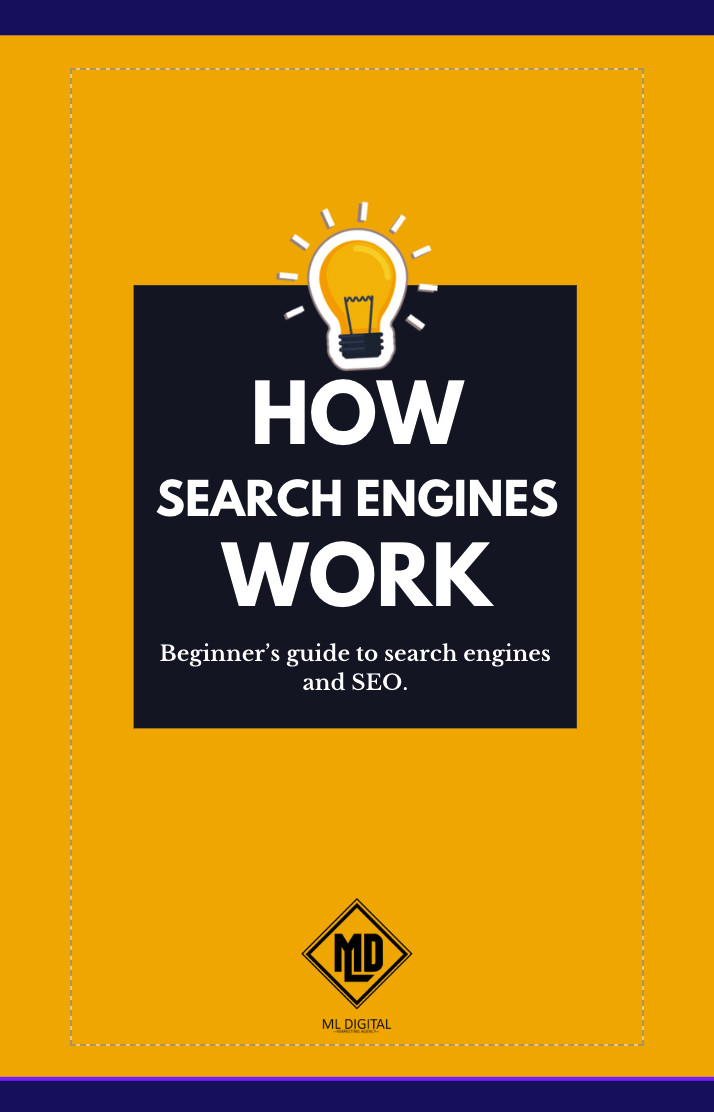How Do Search Engines Actually Work? A Complete Breakdown
Ever typed a question into Google and found exactly what you needed in seconds? It might seem effortless, but behind the scenes, an intricate system of search engines is at work, determining which results you see first.
Understanding how search engines actually work is essential for businesses and content creators who want to rank higher and attract more organic search traffic. Let’s break down the fundamentals of search engine algorithms, web crawling, and Search Engines Optimization ranking factors to uncover the mechanics behind the internet’s most powerful tools.
Understanding the Basics of Search Engines
What Is a Search Engine and Why Does It Matter?
A search engine is a digital tool that organizes and retrieves information from billions of web pages based on user queries. Google, Bing, and other search engines help users navigate the vast web by ranking and displaying the most relevant results.
For businesses and website owners, showing up on the first page of search engine results can drive traffic, leads, and conversions. That’s why understanding search engine optimization (SEO) is crucial.
The Core Functions of Search Engines
Search engines have three primary tasks:
- Crawling – Discovering new and updated web content using automated programs called search engine bots.
- Indexing – Organizing and storing web pages for quick retrieval.
- Ranking – Determining the most relevant results for a user’s search query.
Key Players: Google, Bing, and More
Google dominates the search engine market, processing over 90% of global searches. However, other search engines like Bing, Yahoo, DuckDuckGo, and Yandex serve niche audiences and offer alternative ranking factors.
While most SEO strategies focus on the Google search process, understanding alternative search engines can provide opportunities for broader visibility.
The Three Pillars of Search Engine Operation
Crawling – How Search Engines Discover Content
Search engine bots, also known as crawlers or spiders, continuously scan the internet for new and updated content. These bots follow links from page to page, discovering new websites and adding them to the search engine’s database.
If a website is not crawlable, it won’t appear in search results. Common barriers to crawling include broken links, poor site structure, and missing sitemaps.
Indexing – Storing and Organizing Web Pages
Once a search engine finds new content, it stores and categorizes it in an extensive database called an index. Search engine indexing ensures that when a user searches for information, the system can retrieve relevant pages quickly.
Web pages that are not indexed will not appear in search results, making it essential to ensure that your content is accessible to search engines.
Ranking – Determining the Best Results for a Query
Search engines use complex algorithms to evaluate and rank indexed pages based on relevance, authority, and user experience. Some of the most important SEO ranking factors include:
- Keyword relevance – Matching content with search queries
- Website authority – Measured through backlinks and domain credibility
- User engagement – Factors like time on page and bounce rate
- Page speed and mobile-friendliness – Ensuring a seamless browsing experience
Higher rankings in search engine results lead to more visibility, traffic, and potential conversions.
What Factors Influence Search Engine Rankings?
On-Page SEO: Content, Keywords, and Structure
On-page SEO focuses on optimizing website content to make it more relevant and readable for search engines. This includes:
- Using primary and LSI keywords naturally within the content
- Structuring content with H1, H2, and H3 headers
- Writing compelling meta titles and descriptions
- Optimizing images and internal links
Off-Page SEO: Backlinks and Domain Authority
Off-page SEO refers to actions taken outside your website to improve rankings. The most influential factor is backlinks—links from other websites pointing to your content. Search engines view backlinks as endorsements, with higher-quality links increasing credibility.
Building a strong backlink profile through guest posting, digital PR, and authoritative content can significantly impact rankings.
User Experience: Site Speed, Mobile-Friendliness, and More
Search engines prioritize websites that offer a smooth user experience. Factors like page speed, mobile responsiveness, and secure connections (HTTPS) contribute to higher rankings.
Mobile-friendliness is especially crucial, as Google uses mobile-first indexing, meaning it primarily evaluates the mobile version of a site for ranking purposes.
How to Optimize Your Content for Search Engines
Best Practices for Higher Rankings
To improve search engine rankings, focus on:
- Creating high-quality, valuable content
- Using targeted keywords naturally throughout the content
- Ensuring fast-loading pages and mobile optimization
- Earning high-quality backlinks
- Structuring pages with clear headings and metadata
Avoiding Common SEO Mistakes
Some common SEO mistakes that can hurt rankings include:
- Keyword stuffing – Overloading content with keywords in an unnatural way
- Duplicate content – Reusing content across multiple pages, leading to lower rankings
- Ignoring mobile optimization – Neglecting mobile users can result in traffic loss
- Slow website speed – Longer load times negatively impact both user experience and rankings
The Future of Search: AI and Algorithm Updates
Search engines are constantly evolving, with AI-powered algorithms like Google’s RankBrain adapting to user behavior. Future SEO strategies will require more focus on user intent, AI-generated content recommendations, and advanced ranking signals.
Staying ahead of algorithm updates ensures long-term success in search engine optimization.
Final Thoughts: Let’s Get Your Website to Page 1
Search engines play a vital role in connecting users with the right content. Understanding how search engines work and optimizing for search engine algorithms, web crawling, and ranking factors can significantly improve visibility and drive organic traffic.
If you want expert guidance on improving your SEO strategy and ranking higher in search results, contact us for a free consultation. Let’s build an SEO plan that gets results.
FAQs
1. How long does it take for a new website to appear in search engine results?
It typically takes anywhere from a few days to several weeks for a new website to be crawled and indexed by search engines, depending on factors like site structure and backlinks.
2. Can I pay Google to rank higher in organic search results?
No, Google’s organic rankings are based on algorithms and SEO factors. However, you can run Google Ads to appear in paid search results.
3. Why do search rankings fluctuate over time?
Rankings change due to algorithm updates, competition, and changes in user behavior. Regular SEO improvements help maintain a strong position.
4. What is the difference between organic and paid search results?
Organic search results appear naturally based on SEO, while paid results (ads) are sponsored listings that businesses pay for.
5. Does social media impact SEO rankings?
While social signals don’t directly affect rankings, social media can drive traffic and engagement, which may indirectly influence SEO performance.







